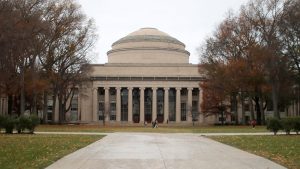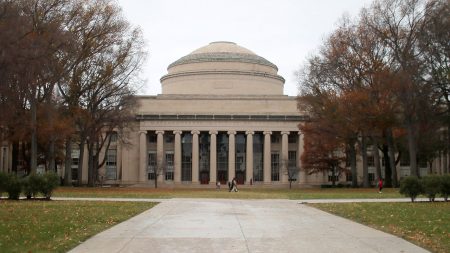The Texas House is on the cusp of electing its next speaker, a move that is causing ripples far beyond the confines of Texas politics. Normally, this wouldn’t grab national attention—Texas is, after all, a Republican stronghold, and the choice is between two conservative candidates. However, the battle for this role has become a breeding ground for political chaos, marked by months of attack ads, threats, and accusations of misconduct. The stakes are high, as the selection could redefine the balance of power in the state and crystalize shifts in the ideological fabric of the Republican Party.
At the heart of the speaker’s race lies a clash between two factions of Texas Republicans: the old-guard conservatives and the more radical wing bolstered by religiously conservative billionaires from West Texas. The first group represents traditional Republicans, reminiscent of figures like former Governors George W. Bush and Rick Perry, who emphasize pragmatism and maintaining Texas House independence. The second faction is pushing an agenda closer to that of the combative and highly partisan Texas Senate, which has been under the firm control of Lieutenant Governor Dan Patrick, a staunch conservative with a hardline agenda.
For decades, the Texas House has served as a balancing force in Austin’s political triad, along with the Texas Senate and the Governor’s Mansion. However, the rise of the hard-right wing threatens to tilt that balance. The radical faction sees this election as a chance to align the House more tightly with their vision—one that prioritizes obedience to conservative orthodoxy over bipartisan governance. This battle, as Texas Rep. Harold Dutton Jr., a veteran Democratic lawmaker, described it, is unprecedented in its intensity. “This is something that has never happened in the history of Texas politics—to have this much chaos as the result of a speaker’s race,” he remarked.
The origins of this contentious fight trace back to 2023. That year, an extraordinary schism erupted after a bipartisan supermajority in the Texas House impeached Republican Attorney General Ken Paxton over allegations of corruption and abuse of office. The move sent shockwaves through Republican circles, enraging hard-right activists and lawmakers, many of whom strongly align with former President Donald J. Trump. Ultimately, the Texas Senate acquitted Paxton later that year, amplifying resentment against moderate Republicans in the House who had supported his impeachment. This cleared the way for Paxton’s defenders to seek revenge through targeted primary campaigns and aggressive political maneuvers.
These efforts bore fruit. Some moderate Republicans who had voted to impeach Paxton chose to retire instead of weathering attacks from the right. Others faced strong challenges during primary season. The ultimate goal for the hardliners was to take full control of the Texas House by sidelining Republicans willing to strike compromises with Democrats and dismantling traditions that allowed minority legislators to play key roles, such as chairing committees or introducing significant bills. For this faction, altering the procedural norms of the House was a way to secure deeper Republican dominance in the state.
Their plan came close to fruition. Dade Phelan, the outgoing speaker who represented the more traditionalist camp, faced mounting pressure after barely surviving a primary challenge. Faced with dwindling support, he chose not to seek another term as speaker. In his place, the hard-right wing of the Republican Party rallied behind Representative David Cook as their candidate. Cook had earned a reputation as a standard-bearer for the movement, advocating for stricter party loyalty and greater alignment with the Texas Senate’s agenda.
Meanwhile, Representative Dustin Burrows stepped forward as the candidate of the traditionalist wing. A Republican from Lubbock, Burrows had a long track record of supporting conservative policies, including Texas’s strict abortion ban and legislation aimed at curbing the influence of Democratic-majority urban areas. His pitch to Republican lawmakers was clear: he was the true conservative choice. However, Burrows represented a stark deviation from the hard-right agenda. He aimed to preserve the independence of the Texas House rather than turning it into a rubber-stamp institution for the Senate and its far-right leaders.
Burrows, knowing he couldn’t garner enough support solely from Republicans, sought to form an alliance of old-guard Republicans and a significant swathe of Democrats. The Texas House is comprised of 150 members—88 Republican and 62 Democratic. With a simple majority of 76 votes needed to claim the speaker’s gavel, it became evident that winning over Democrats would be crucial. Democrats, wary of the hard-right’s growing influence, appeared willing to side with Burrows. “American government works best when people talk, they negotiate,” said Representative Gene Wu, chair of the Democratic caucus in the House. “This idea that we have to shut out the other side completely is dangerous, it’s very dangerous.”
However, Burrows’s bipartisan approach drew sharp criticism from hard-right Republicans, including Lieutenant Governor Dan Patrick, who accused him and his supporters of betraying the party. Patrick took to social media, referencing the iconic 1836 Battle of the Alamo, and accused the Burrows camp of crossing lines in the proverbial sand and abandoning their conservative comrades.
Governor Greg Abbott, while traditionally hesitant to intervene in intra-party squabbles, took sides in this fight. Speaking in alignment with Patrick and Paxton, Abbott insisted that the majority Republican pick—Cook—should become speaker. Abbott’s indirect endorsement added more fuel to the fire, giving momentum to hardliners who already had influential backers. Wealthy donors, like Alex Fairly from Amarillo, poured millions into supporting Cook and other loyalists in future Republican primaries. Campaign-style tours and rallies throughout Texas also rallied support, and activists descended upon the state capitol on election day, bolstered by a music performance from conservative rocker Ted Nugent.
Additionally, the Republican Party of Texas introduced new rules with significant implications for dissenters within their ranks. Under these rules, if Republican lawmakers failed to back the caucus’s pick for speaker, they could face removal from future Republican primary ballots. Abraham George, the state party chairman, made this clear, stating, “If you want to be a Democrat, go be a Democrat. You’re not going to be on our ballot next time.”
This hardline stance drew accusations of coercion and created even deeper divides among Republican lawmakers. Representative Cody Harris, a Burrows supporter, filed an ethics complaint accusing George of making improper threats. The tension escalated further when text exchanges surfaced showing George warning Harris of potential consequences for not backing Cook.
The rhetoric surrounding the race has grown increasingly heated. Members backing Burrows argue that the hard-right wing’s narrative of being the “real Republicans” is contradictory, as Burrows himself has an impressive conservative record. Representative Carl Tepper, another Burrows supporter, highlighted the irony: “The messaging has been these guys are the real Republicans, but it’s Dustin Burrows who has the better conservative record.”
As the legislative session opens, there’s palpable tension in Austin. The speaker vote is expected to be one of the most contentious in recent history. For some lawmakers, it’s a moment to bring their families to witness the tradition of Texas politics. But even that simple tradition has been complicated by the divisive atmosphere. “I told my family, I’m not sure you want to be there for this,” said Tepper. “It’s going to be real ugly.”
For Texans—and the nation—this fight isn’t just about who holds the speaker’s gavel. It’s about the soul of the Republican Party in a state often seen as a barometer for conservative politics in America. Whether the Texas House remains an independent force or becomes part of a unified hard-right machine could have far-reaching consequences for the state’s governance and its role as a Republican stronghold.











